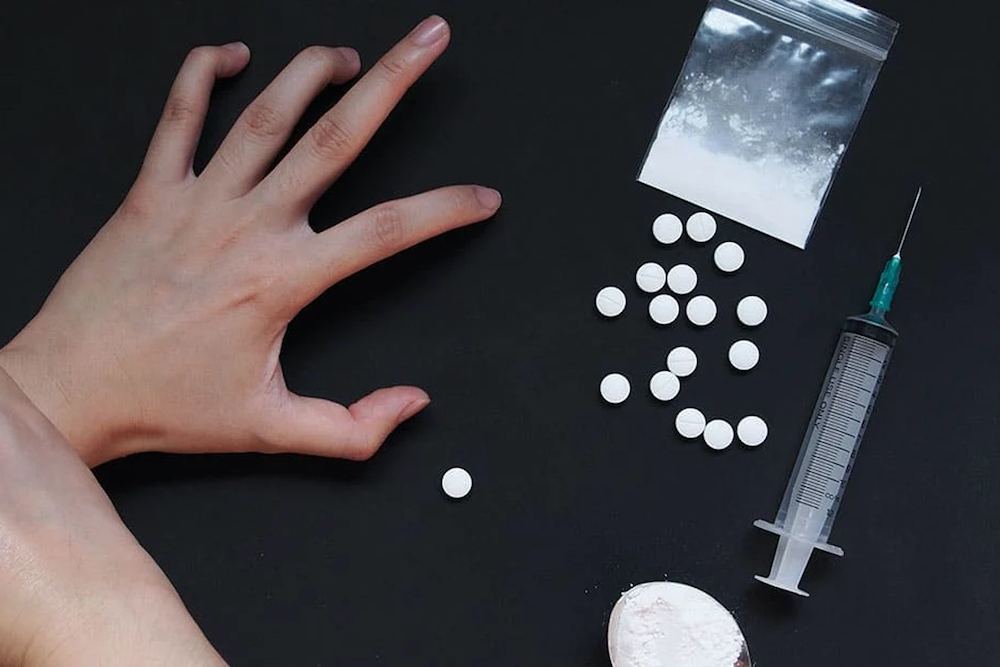With the peak of the COVID-19 crisis just around the corner, everyone is scrambling to keep themselves safe and healthy. However, many people unwilling to come to terms with their substance abuse issues are at increased risk of contracting the virus. In order to best serve this community, we gathered together six signs you need treatment now.
Many people struggling with substance use disorders will live in denial until their rockiest of bottoms. However, with the coronavirus pandemic stopping society in its tracks, it’s more important than ever to face your substance abuse issues.
At Recovery Unplugged, our goal is to provide hope and healing for those struggling with substances by using the power of music. Now more than ever we need to use the healing power of music to help get us and keep us on the track to long-lasting recovery.
The good news is that you don’t have to be a musician to benefit from our treatment– you just need to love music. In fact, over 80 percent of our clients aren’t musicians or musically inclined. With results four times better than the national average, we can proudly say that our treatment works.
Many people currently in active addiction are at increased risk, and overdosing during the pandemic can prove fatal. If you’ve been trying to shrug off the feeling that your substance abuse is out of control, this is your sign to get treatment now.
Recognizing the Signs
Although hindsight is 20/20, there are likely more than a few signs that you’ve been struggling with substance abuse for a while. It’s important to be honest with yourself about the extent of your drug or alcohol use and to examine the role of substances in your life. Only then can you truly surrender yourself and allow Recovery Unplugged to help transform and heal your life.
1. You’ve Lost Your Job (Or A Few)
Although millions across the nation have lost their jobs due to COVID-related unemployment, many people struggling with addiction have lost their jobs due to their dangerous habits. Some people may be losing jobs because of the economic uncertainty we’re facing, but others aren’t.
Losing your employment can stem from an unwillingness to show up and work or from an unhealthy preoccupation with being high. If you’re skipping work, refusing to work without being high, or performing poorly because you’re thinking about substances, you likely have a problem.
Many people in the throes of active addiction also struggle to maintain a healthy bank account. This is not only because they’re jeopardizing their jobs, but also because they’re spending all of their income chasing the next fix. If you’ve lost or risked your job and financial stability to use,
2. You Lose Sight of the Things You Love
Many people in active addiction will find that their passions fade to the background because they’re only focusing on their fix. Many clients that have come through our program admit that along the way, they’ve lost sight of the things they love, including music.
Maybe you’ve been a musician your whole life and suddenly music has taken a backseat to your addiction. Maybe you spent years collecting vinyl records and you’ve pawned them off to make up for the financial burden of addiction.
Have you sold your instruments or other sentimental things in order to afford your next hit? Do you feel like you’re floating farther and farther away from the things that bring your heart true joy?
The wonderful thing about Recovery Unplugged’s music-assisted treatment is that it can help you find the passions that you’ve lost. Treatment, especially at Recovery Unplugged, helps you get reconnected with the things you love.
3. Your Mental and Physical Health Have Deteriorated
When you’re in the throes of addiction, everything aside from using becomes secondary, including your mental and physical health. If you’re constantly preoccupied with getting your next fix, you don’t think about going to the gym, eating healthy, or practicing mindfulness.
This behavior can lead to a number of medical issues related to using and can compromise your immune system. Long-term use can also impact your appearance, causing you to lose weight, pick at your face, and look unhealthy overall.
In active addiction you often will hate the way you’re living, and by extension you learn to hate yourself. Many addicts with comorbidities begin self-medicating to handle underlying mental illnesses or will develop mental illnesses from their substance abuse. This will often lead addicts down the road of depression and suicidal ideation and can cause them to use even more.
4. Your Relationships Have Suffered
When you’re engaging in toxic behaviors, more often than not you’ll drive away the people who love you and want the best for you. If your family won’t speak to you or invite you to holidays because of your drinking habits, you need to reevaluate your relationship with drinking.
The most tragic and palpable loss occurs when children are involved. If you’ve lost custody of your children or have been shut out from their lives, it’s significant to examine the role your substance abuse has played. If you’ve lost relationships and friendships because of your addiction, it’s probably time to look at treatment options.
5. You’re Engaging in Increasingly Risky Behaviors
If you’re doing anything and everything you can to get your next fix, there’s a problem. Putting yourself and others in danger speaks volumes about the extent of your substance abuse.
If you’ve been arrested for possession of drugs, driving under the influence, or other drug and alcohol-related charges, it might be time to check yourself. Are you throwing all caution to the wind to get high just one more time? Have you driven while drunk just to get one more drink?
Only you can answer these questions and assess your behaviors. If you’ve engaged in behaviors like these in the past, then it’s time for you to start looking at treatment options.
6. You Refuse to Stop or Recognize Your Issues
Denial can only take you so far when you’re suffering from the disease of addiction. The truth is that addiction can end in only one of two ways: death, or recovery.
If you’ve experienced an overdose and still find yourself going back to the substance that almost killed you, you need treatment now. Denying that you have a problem when it’s obvious to those around only solidifies this need for treatment.
Getting the Music-Assisted Treatment You Deserve
At Recovery Unplugged, we’re committed to helping you get your life back on the right track with our music-assisted treatment. Regardless of your past risky behaviors or bridges burnt, you deserve the chance to live a life free of substances.
The power of music helps you heal, and we’re here to show you how music is our medicine. You don’t need to be a musician to benefit from our treatment programs, you just need to love music and want it to help change your life. Even Paul Pellinger, one of the creators and co-founders of our musical methods, isn’t a musician
By using music to engage with the underlying causes of addiction, we want to help you get clean for keeps. If you love music, our program is perfect for you.
We weave music into the very fabric of our programs, and we’re excited to help you use music as a catalyst for your recovery. If you need treatment now, we’re here to give you the best treatment possible. Contact our admissions team today to see how music can change your life for the better.
Music truly makes the difference here at Recovery Unplugged. Let us show you how it can make the difference in your life too.






